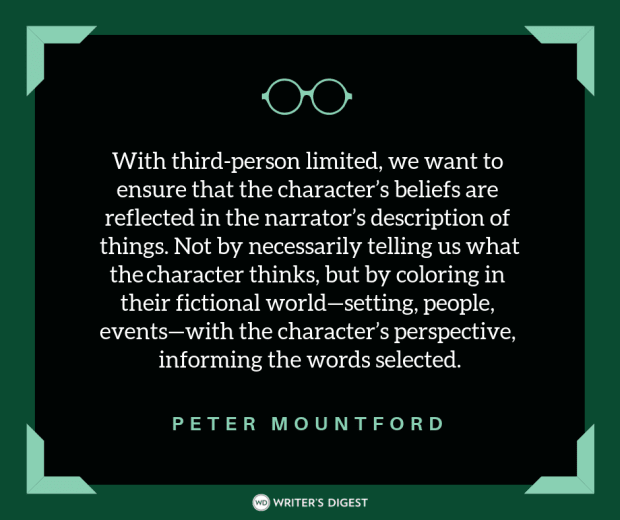Telling a Story: One-Sentence Stress Test
Today’s guest post is by Jim Adam. It is part of a series on storytelling and The Strengths of the Potter Series. Check out Jim’s book, Motherless. — In a…
Today's guest post is by Jim Adam. It is part of a series on
storytelling and The Strengths of the Potter Series. Check out Jim's
book, Motherless.
--
In a work of commercial fiction, the one inescapable positive trait is story. This may sound so obvious as to be condescending, and yet the world’s slush piles are filled with novels that fail this test.
Not
only must the writer have a story, she must tell that story (not get
sidetracked) and must tell that story effectively. Later installments
of this series will focus on these two addendums, because many factors
play into them. For now, however, let’s consider the Potter series, and
the story it tells.
In a single sentence, the Potter
series is about a young wizard who struggles to fulfill his destiny
while also retaining his humanity.
This summary is
certainly vague and would benefit from a few specifics. However, it
also encompasses the overarching plotline of a seven-book series. To
prove that our one-sentence summary represents a story, we need only
compare it to the generic description of a story: A protagonist (“a
young wizard”) overcomes various obstacles (“struggles”) in order to
achieve his goal or goals (“fulfill his destiny” and “retain his
humanity”).
For each book in the Potter series, we can play this same game.
- The
summary of Book 1, Philosopher’s Stone: In order to protect the
wizarding world that he has so recently inherited, Harry must prevent
the philosopher’s stone from falling into the wrong hands. - For
Book 2, Chamber of Secrets: In order to keep Hogwarts from being closed
forever, Harry must solve the mystery of the Chamber of Secrets. - For
Book 3, Prisoner of Azkaban: In order to come to terms with the death
of his parents, Harry must track down their killer, but without losing
his humanity in the process. And so forth.
Would Ms. Rowling
provide an identical one-sentence plot description for the first three
books? Probably not, but the point here is that each book can be boiled
down to such a degree precisely because each book has a definite story
to tell.
Caveats
But can’t every work of commercial fiction be similarly condensed? Unfortunately, no.
The slush piles and remaindered warehouses of the world are full of novels that fail the one-sentence stress test.
Honesty
(and our earnest belief that there are no rules) requires that we pause
to consider successful works that resist a one sentence summary. The Stand and Under the Dome
by Stephen King are both epic works with involved plotlines that
encompass a wide range of POV characters. George R.R. Martin’s Ice and Fire Cycle is similarly complex and therefore difficult to capture effectively in a single sentence. Books like Centennial and Hawaii by James Michener are perhaps even more difficult to
summarize.
We
could certainly make a stab at a single-sentence summary for epics like
those by King and Martin, and we could wave off epics like those by
Michener as being collections of related stories, but in this case,
discretion seems preferable to valor.
For most first-time
novelists, however, pursuing a story that resists the one-sentence
stress test is perilous. Stephen King didn’t start off with The Stand; his first book was Carrie.
Meanwhile, George R.R. Martin only undertook his complex fantasy cycle
late in his career when his skills had reached full maturity.
Complex books like these should come with an FDA label: “WARNING! Trained professionals at work. Do not attempt this at home.”
Struggling writers who wave off such warnings often pay for their hubris by producing a novel that simply doesn’t work.
Telling a Story Effectively
Not
only does the Potter series have a story to tell, it embodies a wide
range of strengths that help it tell that story effectively. Unlike
story, however, these other strengths are desirable but (as the
bestseller list proves) none are essential. They are more in the nature
of checkboxes.
A story is a powerful thing and can cover a
multitude of sins. Still, if a writer leaves too many boxes unchecked,
the cumulative vacuum can suck the life out of her work, and so it
behooves us to pay careful attention to these “optional” qualities.
In the case of the Potter series, a lot of boxes got checked, usually with one of those really thick magic markers.
- The story feels original
- The story has a concrete, telegraphed structure
- Premise isn’t mistaken for story
- The prose is strong without being florid
- Readers form an emotional attachment to main characters
- The story is tightly focused
- The story’s use of POV is controlled and reliable
- The story contains a significant disturbance to the protagonist’s world
- Settings are detailed and relevant, so that they become like characters within the story
- The story emphasizes showing, using telling in moderation and only as required
- Information is withheld until it is relevant
- Tense moments are stretched
- Almost every scene contains some form of conflict or suspense
It
seems like a long list, and it is. Moreover, few bestsellers contain
all these positive qualities. But these are all elements that
contribute to the effective telling of a story, and the Potter series does embody all of these strengths.
The
many strengths of the Potter series (above and beyond its compelling
story) differentiate it from 99.99% of what agents and editors have
sitting in their slush piles.
(To get a feel for what a slush pile looks like, examine some of the novels posted at Authonomy.com.
Though many of the works there show signs of talent, they also
demonstrate fundamental problems that derail the reading experience,
often derailing it before the end of the first chapter. Certainly, by
the end of the first hundred pages, all but the most dedicated reader
will have given up in despair.)
Later installments of this series look at these “optional” qualities that have contributed to the success of the Potter series. Next up: Originality.
—
Looking for more help on story-building? Don't miss these offerings:
- Check out one of our newest releases by literary agent Donald Maass: The Fire in Fiction. Read an excerpt on characters who matter.
- Take an online course and get feedback from a professional and published instructor. Here's one of my favorites on plot & structure. (Use coupon code JAN10 to get 15% off.)
Jane Friedman is a full-time entrepreneur (since 2014) and has 20 years of experience in the publishing industry. She is the co-founder of The Hot Sheet, the essential publishing industry newsletter for authors, and is the former publisher of Writer’s Digest. In addition to being a columnist with Publishers Weekly and a professor with The Great Courses, Jane maintains an award-winning blog for writers at JaneFriedman.com. Jane’s newest book is The Business of Being a Writer (University of Chicago Press, 2018).









